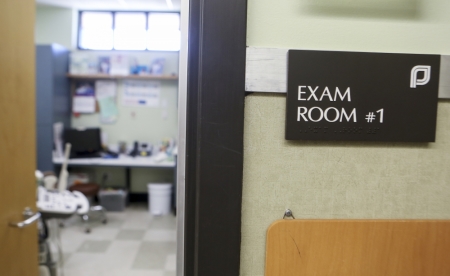Tennessee's 48-hour abortion waiting period law reinstated by appeals court

The U.S. Court of Appeals for the Sixth Circuit has allowed a Tennessee law requiring women seeking an abortion to wait 48 hours before they can undergo the procedure to take effect until a ruling on the law’s constitutionality is reached.
In a brief opinion released last Friday, a majority of judges on the Sixth Circuit agreed to stay a lower court ruling that placed an injunction on the 2015 waiting period law and granted an appeal in the case.
“It is further ORDERED that the motion to stay the district court’s judgment and injunction pending appeal is GRANTED, and that our prior opinion to the contrary … is VACATED,” stated the order.
The order comes after a federal court struck down the waiting period in October 2020. The state’s appeal of that decision is pending.
The Sixth Circuit’s order included two dissents, one of which was written by Judge Julia Smith Gibbons, who opposed granting the appeal and lifting the lower court injunction.
“It defies precedent to summarily conclude that all waiting periods are constitutional, no matter the circumstances,” wrote Gibbons, an appointee of President George W. Bush. “The State also intimates that the existence of similar waiting periods in fourteen other states should lead us to find that Tennessee’s waiting period is constitutional.”
“But, by my count, federal courts of appeals have only decided that four of those waiting periods do not infringe upon the right to an abortion, and the courts’ rationales vary.”
Attorney General Herbert H. Slatery III praised the court’s decision.
“We are pleased that the full Sixth Circuit has recognized that Tennessee’s law, requiring a 48-hour waiting period for abortions, is likely constitutional and can be enforced while the appeal proceeds,” Slatery stressed.
“The Supreme Court has recognized the authority of State governments to provide women considering abortion the opportunity to receive important information before a life-changing decision is made. Tennesseans, through their elected representatives, voted for this law and this Office will defend it.”
In 2019, a study released by Jason M. Lindo and Mayra Pineda-Torres of Texas A&M University indicated that the Tennessee abortion rate declined by 6% due to the waiting period law enacted by then-Gov. Bill Haslem in 2015.
The study also found that the price for obtaining an abortion had increased by around $900 due to the requirement for the additional counseling appointment.
“Delayed abortions can increase monetary costs for two main reasons. First, delays can increase the cost of the procedure, which typically rise with gestational age,” the researchers reported.
“Second, delays can require women to travel to more distant providers because providers vary in the types of procedures they offer and the gestational ages at which they offer them.”
A group of abortion providers sued the state over the regulation, with U.S. District Court Judge Bernard A. Friedman, a Ronald Reagan appointee, ruling against the waiting period law last October.
“It is apparent that this waiting period unduly burdens women’s right to an abortion and is an affront to their 'dignity and autonomy,' 'personhood' and 'destiny,' and 'conception of . . . [their] place in society,'” wrote Friedman.
“Defendants’ suggestion that women are overly emotional and must be required to cool off or calm down before having a medical procedure they have decided they want to have, and that they are constitutionally entitled to have, is highly insulting and paternalistic — and all the more so given that no such waiting periods apply to men.”
Brian Harris, president of Tennessee Right to Life, released a statement in 2015 expressing support for the waiting period law, arguing that “women and girls considering abortion in our state deserve relevant details and adequate time to make fully informed decisions about the fate of their unborn child.”





















